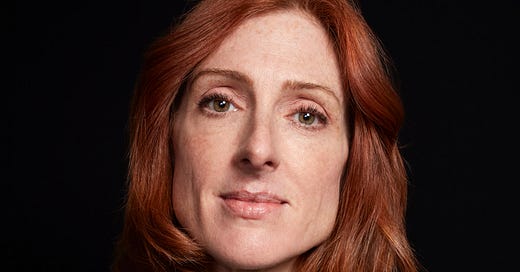Because I volunteered as an Emergency Medical Technician in New York City during the Covid-19 pandemic, and lost a close friend to 9/11-related cancer, and my landlord raised the rent on my Brooklyn apartment $400 a month, and my pandemic puppy kept snarfing up chicken bones and surgical masks from the trash-befouled streets, I moved, like so many New Yorkers, upstate.
In the rural hamlet I now call home the population is just over 1,200 and sirens cannot be heard at all hours of the night and when I look out my windows I see horses, barns, red oak trees, wild bergamot, and bright green acres of hay.
My plan once I moved to the Hudson Valley was that I had no plan. I was a bundle of raw nerves and unexamined grief. The Covid outbreak had done a real number on me, and things that once filled me with joy—reading, writing, and for years, volunteering on ambulances—no longer worked. I abandoned books after reading a few chapters, having lost the plots. Nearly one-third of EMTs in America quit in 2021, and I was one of them. My uniform hung in my closet like a relic from a lost world. And then there was my writing life—or lack thereof. “All I need is a window to not write,” Tobias Wolff once said. For me, the pandemic was quite a window.
I had published a memoir about being a first responder in New York City before and during the pandemic, and now I had nothing left to say on this or any other subject. I didn’t know what story I wanted to tell next, and every time I sat down to write a voice in my head said, “How can you make art in a time like this?”
For a long time, I couldn’t.
After seeing so many people suffer and die I had an urge to surround myself with nature and become a dog-mothering hermit in an effort to avoid more pain. New York City was, for a time, the epicenter of the pandemic, and wherever I landed seemed less important than getting out.
This was hardly a novel idea: Around 49,000 New Yorkers moved to the Hudson Valley in 2020 alone. At the height of the pandemic I had judged people for fleeing when the city needed help. But two years later I came to understand what others had foreseen during the spring of ceaseless sirens: There is a need, when life explodes like a letter bomb in your face, to escape.
I thought about escaping to Los Angeles and I thought about escaping to Paris and I thought about and ultimately escaped upstate because it was close enough to the city that I could let go without fully letting go, I could go back if I wanted to and my friends could come visit, it was only a two-hour drive.
My first days in the country all I could do was cry and unpack and walk my dog on a trail that wound through the woodland forest. As a city girl I’d committed social suicide by moving to a town where I had no friends. Perhaps because I’d heard so many stories of relocated New Yorkers suffering from isolation, I kept my online dating profile active, switching my location from Brooklyn to Kingston, which, while nearby, was not where I lived.
Almost immediately I matched with a man around my age who lived in Hudson, New York, where he was born and raised. His name was Evan and he ran operations for a manufacturer of organic fruits and nuts. In my mind, he was a farmer. I was also a farmer. After a week of texting he asked if I wanted to meet for coffee one afternoon in Woodstock, and I agreed.
Keep reading with a 7-day free trial
Subscribe to Life Galore to keep reading this post and get 7 days of free access to the full post archives.




